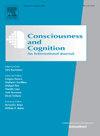Am I in control? The dynamics of sensory information, performance feedback, and personality in shaping the sense of control
IF 2
3区 心理学
Q2 PSYCHOLOGY, EXPERIMENTAL
引用次数: 0
Abstract
Sense of control (SoC) over our actions is crucial for regulating our behavior. SoC arises from low-level processes, such as immediate sensory feedback, and high-level processes, such as performance evaluation. Studies using simple action-effect tasks suggest that people rely more on low-level sensory than on high-level cues of control. Yet, it remains unclear how these cues interact to shape the SoC in complex, goal-directed environments that require continuous behavioral adaptation. To investigate this, 50 participants performed a challenging motor control task akin to a video game, steering a spaceship along a continuously changing path. Sensorimotor control was manipulated by varying task difficulty via input noise across experimental blocks. After each trial, participants received negative, neutral, or positive feedback, followed by rating of their SoC. Linear mixed model analyses revealed that both sensory and evaluative feedback influenced the SoC. SoC decreased with increasing task difficulty. Furthermore, independent of difficulty, negative feedback reduced the SoC whereas positive feedback enhanced it, with a stronger effect for negative feedback. Notably, the effects of task difficulty and negative feedback were influenced by participants’ depressive symptoms and their external locus of control, suggesting that generalized control beliefs modulate task-specific control experience. These findings indicate that SoC is informed by both low-level sensorimotor cues and high-level affective feedback, suggesting an integration of multiple types of information to assess control in dynamic task contexts where action-effect contingencies are extended over time. Crucially, these effects depend on trait-like control beliefs, highlighting the need to account for individual differences when investigating situated control experience.
我能控制一切吗?感官信息的动态,表现反馈,和个性在塑造控制感。
对我们行为的控制感(SoC)对于调节我们的行为至关重要。SoC产生于低级的过程,如即时的感官反馈,以及高级的过程,如性能评估。使用简单动作效果任务的研究表明,人们更多地依赖于低水平的感官信号,而不是高水平的控制信号。然而,这些线索是如何在复杂的、目标导向的、需要持续行为适应的环境中相互作用来塑造SoC的,目前还不清楚。为了调查这一点,50名参与者执行了一项类似于电子游戏的具有挑战性的运动控制任务,即沿着不断变化的路径驾驶宇宙飞船。感觉运动控制通过不同的任务难度通过输入噪声在实验块。每次试验结束后,参与者分别收到消极、中性或积极的反馈,然后对他们的社会反应能力进行评分。线性混合模型分析表明,感官反馈和评价反馈对SoC都有影响。SoC随任务难度的增加而降低。此外,与难度无关,负反馈降低了SoC,而正反馈增强了SoC,且负反馈的效果更强。任务难度和负反馈的效应受到被试抑郁症状和外部控制点的影响,说明广义控制信念调节任务特异性控制体验。这些研究结果表明,SoC既受低水平感觉运动线索的影响,也受高水平情感反馈的影响,这表明在行动效应随时间延长的动态任务情境中,多种类型的信息被整合来评估控制。至关重要的是,这些影响依赖于类似特征的控制信念,强调了在调查情境控制经验时考虑个体差异的必要性。
本文章由计算机程序翻译,如有差异,请以英文原文为准。
求助全文
约1分钟内获得全文
求助全文
来源期刊

Consciousness and Cognition
PSYCHOLOGY, EXPERIMENTAL-
CiteScore
4.30
自引率
8.30%
发文量
123
期刊介绍:
Consciousness and Cognition: An International Journal provides a forum for a natural-science approach to the issues of consciousness, voluntary control, and self. The journal features empirical research (in the form of regular articles and short reports) and theoretical articles. Integrative theoretical and critical literature reviews, and tutorial reviews are also published. The journal aims to be both scientifically rigorous and open to novel contributions.
 求助内容:
求助内容: 应助结果提醒方式:
应助结果提醒方式:


